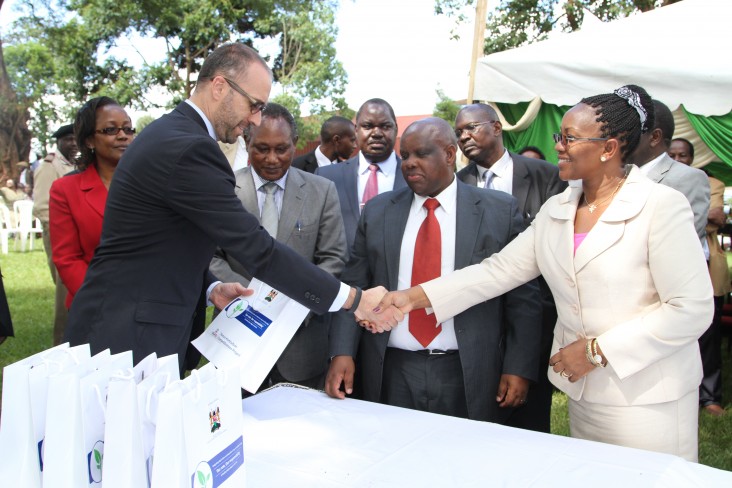
Agri-nutrition tools on offer to all 47 counties
For Immediate Release
NAIROBI, April 14, 2014 – U.S. Agency for International Development (USAID) Kenya Director of the Agriculture, Business and Energy Office Mark Carrato joined Principal Secretary for Agriculture Sicily Kanini Kariuki at the launch of a Government of Kenya e-Extension Program that promises to bring expanded agricultural and nutrition services to all 47 counties. One of these services is the introduction of a USAID-supported Agri-Nutrition Resource Manual for Trainers. The manual is a development effort between the Ministry of Agriculture, Livestock and Fisheries, Ministry of Health, and the USAID Kenya Horticulture Competitiveness Project to transform the dietary behavior of rural Kenyan farming families.
The Applied Basic Agri-Nutrition Resource Manual for Trainers and toolkit will help rural households improve their nutrition and reduce lifestyle diseases, increasing their resiliency during times of drought or high food prices. In the last nine months, the partnership has equipped and empowered more than 4,000 county experts and trainers to reach 50,000 households for improved nutrition.
“USAID is proud to have partnered with the Ministry of Agriculture, Livestock and Fisheries and the Ministry of Health to create a toolkit that helps rural Kenyans improve their nutrition and resiliency. Healthier people are better able to adapt to survive periods of drought or famine,” said Mr. Carrato.
The USAID Kenya Horticulture Competitiveness Project is part of President Obama’s Global Hunger and Food Security Initiative called Feed the Future, which seeks to address the root causes of hunger and poverty, and create conditions in which food assistance is no longer necessary.
USAID is the U.S. Government agency responsible for administering civilian foreign assistance.
Related Press Releases
- USAID and IREN announce winners of East Africa Postharvest Technologies Competition 2017
- Power Africa Launches New Partnership with the Nile Basin Initiative and the Nile Equatorial Lakes Subsidiary Action Program
- USAID and COMESA Sign $77 Million Partnership Agreement to Strengthen Regional Development







Comment
Make a general inquiry or suggest an improvement.